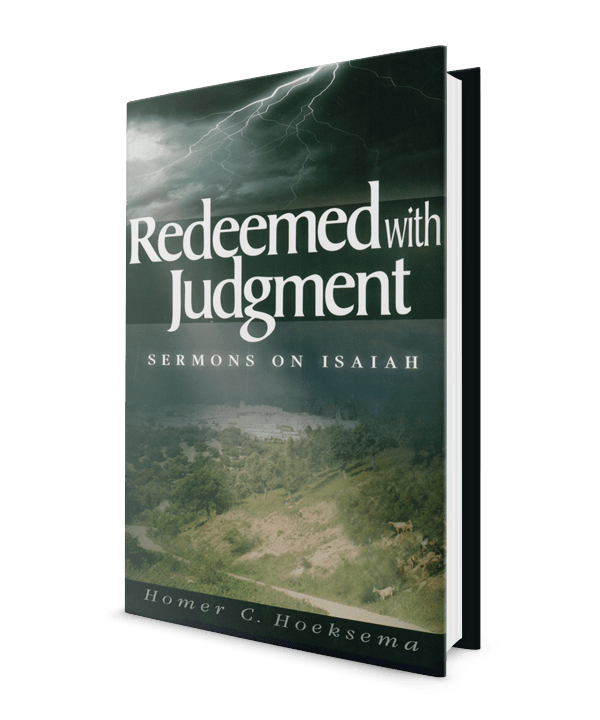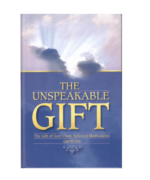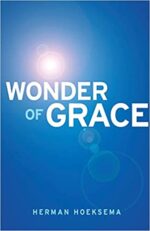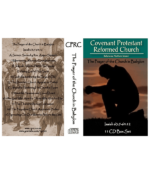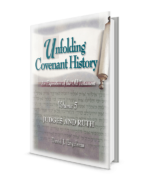The prophecy of Isaiah occupies a large place in the Old Testament canon of Scripture, not only from the viewpoint of its length, but also from the perspective of its significance. Second only to the psalms, it is the book most frequently quoted in the New Testament. Among the books of the prophets, it is quoted by Jesus and his apostles in support of the New Testament gospel of grace more frequently than all of the other prophets put together. In addition, Isaiah’s vocabulary is richer than that of any other prophet, and even more comprehensive and diverse than that of the psalms.
Why did Jesus and his apostles quote from Isaiah as often as they did? What did the author of this book see in the prophecy of Isaiah that made him concentrate much of his preaching on this book for some thirty years? The answer lies in the messianic characteristic of the book; Isaiah speaks of Christ. Sometimes the prophecy is indirect, vague, and difficult to understand. At other times clear, literal, and straightforward. In either case, Isaiah always speaks of the coming of the Messiah implying both the judgment of the wicked world and the salvation of Zion.
The author of this book, Homer C. Hoeksema served as minister in the Protestant Reformed Church from 1947 to 1959 as a professor of Old Testament and Dogmatics in the Theological School of the Protestant Reformed Churches from 1959 until his death in 1989. Hoeksema loved the prophecy of Isaiah and preached on 125 different passages from this book. Redeemed with Judgment: Sermons on Isaiah is the transcribed and edited collection of these sermons, some of which can be listened to free on-line.
BOOK REVIEW
This superb, hardback book sets forth powerful, unchanging truths for the Christian and the church of Jesus Christ. Thoroughly exegetical and expository, these sermons on Isaiah 1-39 open up the grand Messianic prophecies of the evangelical prophet (e.g., in Isaiah 2, 4, 7, 9, 11, etc.) and trace the experiences of the Old Testament church. The times were evil, with Israel facing not only the threats of war from her neighbouring enemies, but also apostasy from within. This apostasy manifested itself particularly through Israel’s unholy alliance with God’s enemies. Consequently, Israel provoked the righteous God to anger. Both the godly and the ungodly seed suffered the effects of Jehovah’s terrible judgments. But the faithful remnant must be comforted because “to outward, carnal Zion Isaiah prophesies doom and destruction, while to spiritual Zion he speaks comfort and salvation” (p. 44).
Deeply enthralling is the author’s ability to apply these OT lessons to the church today. As a picture of the New Testament church, Israel’s experiences necessitate our learning. Only too real is the similarity drawn between God’s people today and in Isaiah’s time. They always appear small in number and are constantly assailed and oppressed by their enemies. But we are assured that He “smites the righteous in divine love, and he smites the reprobate, ungodly world in divine wrath” (p. 299). In every sermon this idea is powerfully demonstrated. God destroys the wicked but chastises His children till they reach perfection through their crucified Redeemer. It is an amazing source of hope and comfort as the church of Jesus Christ sails through the stormy seas.
Appropriately discussed in these sermons are precious truths for the child of God. In the negative sense heresies and errors are exposed. Thus the evils of dispensationalism and common grace are condemned. On the positive side, God’s everlasting truth is maintained, serving as a sure foundation and guide for His children.
The theme of Isaiah, according to the author, is not only comforting but humbling: “The sovereignty of the holy and omnipotent God revealed in the salvation of covenant Zion in the way of judgment” (p. 8). Through judgment both God’s people and the ungodly are compelled to acknowledge Him as the Sovereign One. Through judgment God’s elect are separated from the ungodly world. Therefore, the salvation of God’s people “can come only in the way of Jehovah’s judgments” (p. 273). And redeemed they shall be!
Highly recommended. Volume 2 of Redeemed with Judgment on Isaiah 40-66 completes the set.
Aaron Lim, Singapore
____________________
“Thank you! Excellent book [Redeemed with Judgment], could not put it down … May God continue to richly bless all of you.” – New York, USA
“I have just finished Redeemed with Judgment, a book I will treasure. Every page I turned was just filled with God’s truth.” – Co. Antrim, N. Ireland
Click here for a translation of chapter 1 into Italian.
Click here for a translation of chapter 1 into Portuguese.
Click here for a translation of chapter 12 into Portuguese.
Click here for a translation of chapter 47 into Portuguese.

